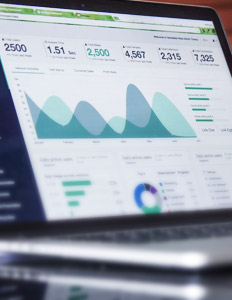Webinars
3 strategies to maximize technology in your capital projects
FREE | October 19, 2023
REGISTERIn recent years, digital technologies have changed the way chemical companies operate. These technologies have enabled information to become available when and where it is needed, allowed processes to become simulated in a virtual environment before being implemented on-site, made it possible for plant operators to be more mobile, and much more.
So, what do you do when you are building a completely new plant where your options are theoretically endless? How do you decide which technologies to employ and ensure they are truly integrated to create the biggest impact on your project? Where do you even start?
Join us for this webinar to find out how a large chemical manufacturer tackled this exact challenge. Based on the learnings from a large capital project, Tony Lee, a Production Engineer/Supervisor from Evonik, will shed light on the thought process that went into making technology decisions and specific areas of the project that were impacted as a result. Mr. Lee will be joined by Todd Hassel, who is a Regional Account Manager with Siemens Industry.
Don’t miss out on this opportunity to discover how to maximize your investment in digital technologies.

How to prevent solids and powder flow stoppages with proper feeder design
FREE | October 18, 2023
REGISTERHandling powders and bulk solids can be considerably more challenging than dealing with liquids and gases. These difficulties often arise due to a lack of adequate training, leading to a reliance on trial-and-error methods. Bulk solids and powders frequently encounter various flow challenges, including bridging, ratholing, flooding, and inadequate flow rates, and more.
Many of these flow issues can be traced back to improper discharger or feeder designs. Effective feeder design not only enhances the flow within bins, hoppers, and stockpiles but also positively influences product quality. Join our webinar to gain valuable insights into common feeder-related flow problems and receive essential design recommendations that can significantly benefit your operations.

Take the Pressure Out of Regulator Selection
FREE | September 26, 2023
REGISTERPressure regulators play a crucial role in maintaining and controlling pressures in industrial fluid and instrumentation systems, and selecting the right ones is important to keeping those systems operating properly. To avoid inefficiency, poor performance, frequent troubleshooting, and potential safety hazards, it’s important to understand:
• Different types of regulators available
• How these various regulators function
• How they can be applied to suit your system
Need help? Don’t miss this webinar. Join us as Shaji Arumpanayil, our pressure regulator product manager, explains what you need to know about pressure regulators and the nuances of your fluid systems to find the best option for your needs.

Chemistry is NOT only, when it stinks and bangs… Save 90% Time and Energy through more effective Mixing and Dispersion Technology
FREE | October 5, 2023
REGISTERHomogeneous mixing and high-shear dispersion are core processes in chemical process technology. We would like to introduce you to three typical ystral processes that can accelerate numerous processes in the chemical industry. Time and energy savings of up to 90% are certainly not uncommon. Whether in the production of resins, plastics, pesticides, lubricants, cleaning agents or many others, effective machines and systems are needed everywhere.
Conventional agitators create a horizontal rotation in the liquid. This hinders the vertical exchange of substances. You can agitate for hours, but the mixture never becomes completely homogeneous. ystral Jetstream Mixers, on the other hand, use a consistently vertical mixing principle. This way, everything is mixed completely homogeneously from bottom to top, usually in less than three minutes. The difference is enormous.
With our high shear dispersing machines, we move intensive processes out of the process tank and into an external loop. This not only speeds up processes, but all the processing conditions can be controlled much better.
When using our Conti-TDS machines, it’s all about dust-free powder processing, safe handling of hazardous substances, avoiding respirable dusts and vapors, explosion protection and maximum dispersion to fully utilize the components in the final product. And the final products are diverse: man-made fibers, conductive films, anti-graffiti or flame-retardant coatings, PU foams, silicone rubber, sol-gel processes, protective colloids for PVC production, release agents for tire production and much more. There are hundreds of applications in which optimized dispersion achieves advantages in the process and also in the ultimate product.

TAR planning doesn’t need to suck: How to solve the data problem and master continuous improvement
FREE | August 31, 2023
REGISTERWith 50% of shutdown projects going over budget and past timelines, smarter upfront turnaround planning can have a significant impact on both cost and annual production capacity. But effective TAR planning remains challenging and inefficient due to data silos, manual work (such as isolation diagrams), and poor collaboration across teams.
In this webinar, Cognite’s industry experts, Scott and Torgrim will discuss the persistent data challenges that hinder efficient TAR planning in more detail. We will also share how a comprehensive, data-first approach can improve TAR outcomes and contribute to a better continuous improvement process using insights and best practices from Cognite customers in Specialty Chemicals and Oil and Gas.
Don’t miss your opportunity to discover how emerging technologies like generative AI and an industrial canvas can enable smarter, more effective planning with simple access to complex industrial data. Equip your teams with the knowledge they need to drive success and overcome the limitations of the traditional TAR planning approach.

Utilizing Smart Devices to Electrify the Grid
FREE | August 22, 2023
REGISTERThe demand for electricity is increasing, and the grid is not always able to keep up. This is where smart solutions for heating, ventilation, and air conditioning—better known as HVAC—come in. Strategies designed to enable users to participate in demand response programs, facilitate load flexibility, and integrate hybrid and electrified HVAC systems, help reduce the strain on the grid. Smart devices enable a utility to work with its customers to ensure a reliable supply of electricity during periods of peak demand.
In this webinar, you’ll learn:
• Role of Smart devices
• Broader trend of electrification role
• Smart Vent Coolers
• Future of smart devices and the benefits of participating in demand response programs
• How to get involved in a program in your area

Accelerate to net zero: digital technologies for Carbon Capture, Utilization and Storage (CCUS)
FREE | August 8, 2023
REGISTERAs part of efforts to combat climate change, many countries, companies and other organizations have committed to net zero emissions targets. Achieving these targets will require fundamental changes in the energy & chemical process industry. With many of the transformative technologies required still in their infancy, there is a need for solutions that support a reduction in greenhouse gas emissions now. Carbon capture, utilization and storage (CCUS) can help reduce emissions from today’s fossil-based processes. Moreover, CCUS is particularly relevant for high-temperature chemical processes for which there are few alternatives.
By their very nature, CCUS facilities need to be tightly integrated into other process systems. This raises questions on how best to maximize efficiency of the overall system, what impact the CCUS process has on process dynamics and control, and how best to reduce capital and operating expenditure. Questions like these require a sufficiently accurate representation of the entire process, in order to accurately predict plant performance, and operate closer to true limitations.
In this webinar, we discuss how digital design techniques are used to map system interactions, predict process responses in highly transient scenarios, optimize equipment and system designs, and ultimately provide reassurance to all stakeholders in the CCUS chain to confidently navigate the road to decarbonization.

Sustainable Water For Blue And Green Hydrogen
FREE | July 25, 2023
REGISTERGreenhouse gas emission targets are driving the Energy Transition and sustainable performance to reduce carbon intensity. Decarbonization of hydrogen production is becoming a key global initiative. Around 71% of global hydrogen production in 2019 (70 million tonnes) was driven by refineries, ammonia, and methanol production, with the hydrogen being sourced primarily from natural gas. After the development of the UN Sustainable Goals in 2015 and more recently with the Inflation Reduction Act, Infrastructure Law, and America’s Water Infrastructure Act, the development of blue and green hydrogen projects are at the center of how the energy and chemicals industry is responding.
There are two main categories of hydrogen based on method of production: Blue and Green. Blue hydrogen production involves the coupling of conventional hydrogen production with carbon capture and storage. Natural gas is transformed with steam or/and oxygen (i.e., steam methane reforming or autothermal reforming). Green hydrogen involves coupling the electrolysis of water with renewable energy, making it a carbon neutral process. Both processes require large amounts of water. Water must be treated prior to chemical or electrochemical processing and also wastewater generated by the processes also need to be treated prior to discharge.
Effective water treatment for hydrogen production is essential because on the front end it must be the right quality and quantity otherwise the process will not be successful. Wastewater must meet effluent guidelines and requirements. To be truly successful the water treatment process must be completed in such a sustainable way that it reduces the demand for initial source water.

Digital Twins: The Accelerated Path to Autonomous Operations
FREE | June 22, 2023
REGISTERThe concept of digital twins has been around since 1960s, but the term was first introduced nearly a decade ago by NASA’s John Vickers. Until very recently, adoption of digital twins has been inconsistent, but acceptance looks to be accelerating with recent market shifts. Today’s users are seeing exponential benefits by deploying multiple digital twins across sites. The next wave of digitalization innovations, powered by digital twins and AI, is creating new levels of agility and flexibility, paving the way to autonomous operations.

Enable Industry 4.0 Initiatives: Accelerate Data-Driven Value Creation with AspenTech Inmation™
FREE | April 25, 2023
REGISTERThe chemical industry, like other capital-intensive industries, generates large amounts of data that never gets collected, contextualized and used to its full potential. Industrial data from a variety of sources and locations has the potential to help organizations meet energy efficiency goals, avoid raw materials/feedstock shortages, decrease downtime, increase profitability and improve ESG reporting. Join this live webinar to learn how chemical producers are using AspenTech Inmation to ingest, centralize and transform siloed, disparate data into actionable information.
